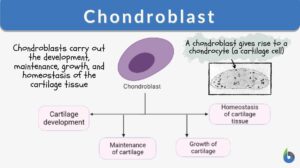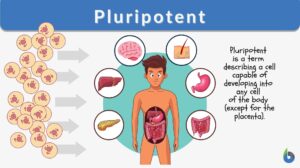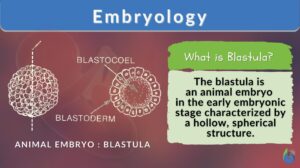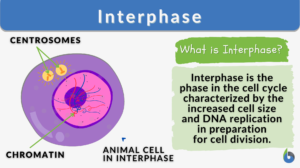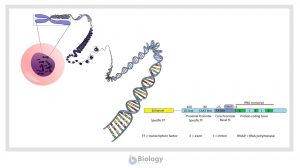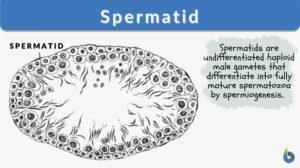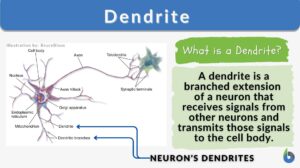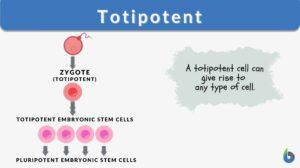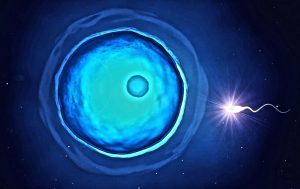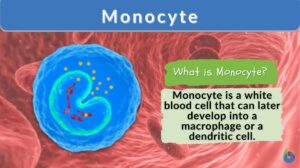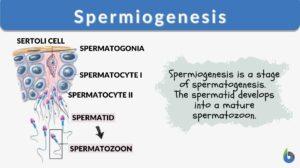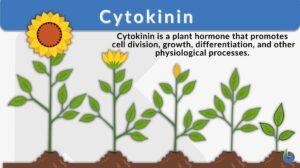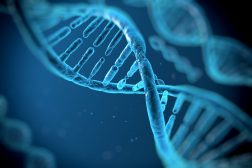Search Results for: cell differentiation
Cell differentiation
Cells are often described as the building blocks of life as they are the smallest unit used to build up organisms. Cells can... Read More
Differentiation
Differentiation in biology is the process where less specialized cells undergo changes to develop specialized structures and... Read More
Chondroblast
There are two forms of cells in cartilage: chondroblasts and chondrocytes. The chondroblasts are cells that secrete the... Read More
Autocrine signaling
Autocrine Signaling Definition What is autocrine signaling? Autocrine signaling is a type of cell signaling wherein a cell... Read More
Cell adhesion
Cell Adhesion Definition Cell adhesion is the process in which a cell uses a specialized complex of proteins to get... Read More
Cell division
Cell division is a biological process by which a parent cell duplicates its cell contents and divides to give rise to two or... Read More
Pluripotent
Pluripotent Definition What is pluripotent? In biology, the term "pluripotent" means capable of developing into... Read More
Cell theory
What Is Cell Theory? Biological cell theory explains the idea of organismal constitution, structure, and function. It... Read More
Interphase
Interphase is the critical period in the eukaryotic cell cycle characterized by a sequence of events like the G1 phase where... Read More
Dedifferentiation
Definition noun (developmental biology) A cellular process in which a differentiated cell loses its special form or... Read More
Gene Regulation in Eukaryotes
Reviewed by: Mary Anne Clark, Ph.D.Eukaryotic Gene Structure In prokaryotes the DNA is located in the... Read More
Cytoskeleton
Definition noun plural: cytoskeletons cy·to·skel·e·ton (cell biology) The lattice or internal framework of a cell... Read More
Living things
Living Things Definition A living thing pertains to any organism or a life form that possesses or shows the characteristics... Read More
Tight junction
What are tight junctions? Tight junctions are the intercellular barrier between two neighboring endothelial and epithelial... Read More
Bone matrix
Bone Matrix Definition Bone matrix refers to the matrix component of bone tissue. It provides the structural framework and... Read More
Centrosome
Centrosome Definition What is a centrosome? The centrosome is considered to be the main microtubule-organizing... Read More
Maturation
Definition noun, plural: maturations (1) The process of differentiation (2) The process of becoming... Read More
Eukaryotic cells
Eukaryotic Cells Definition What is a eukaryotic cell? Eukaryotic cells refer to the cells of (or derived from) eukaryotes,... Read More
Humoral immunity
Let’s get to know where one should place humoral immunity, the topic of today’s discussion!! By the end of the article,... Read More
Nucleosome
Nucleosome Definition Every organism is made of deoxyribonucleic acid, also known as DNA. DNA is made up of numerous... Read More
Mitochondrion
Mitochondrion Definition What are mitochondria? The term “mitochondrion” comes from the two words of the Greek... Read More
Totipotent
Totipotent Definition What is totipotent? In general terms, totipotency is defined as the ability of a single cell to... Read More
First time! Human blood cell turned into a young sex cell
In essence, our body consists of two major types of cells – one group involved directly in reproducing sexually (called... Read More
Erythrocyte
Erythrocyte Definition Erythrocytes (red blood cells or RBCs) are the myeloid series of specialized cells that play an... Read More
Spermiogenesis
Spermiogenesis Definition Spermiogenesis is the stage of spermatogenesis wherein the spermatids differentiate into mature... Read More
Genetic variability
Genetic Variability Definition Genetic variability refers to the tendency of individual genetic characteristics in a... Read More
Smooth endoplasmic reticulum
Smooth Endoplasmic Reticulum Definition Smooth endoplasmic reticulum (sER) is part of or a region in the endoplasmic... Read More
Genetic Control – On and Off Genes
Reviewed by: Mary Anne Clark, Ph.D.This lesson looks at the various factors involved that affect growth and... Read More



